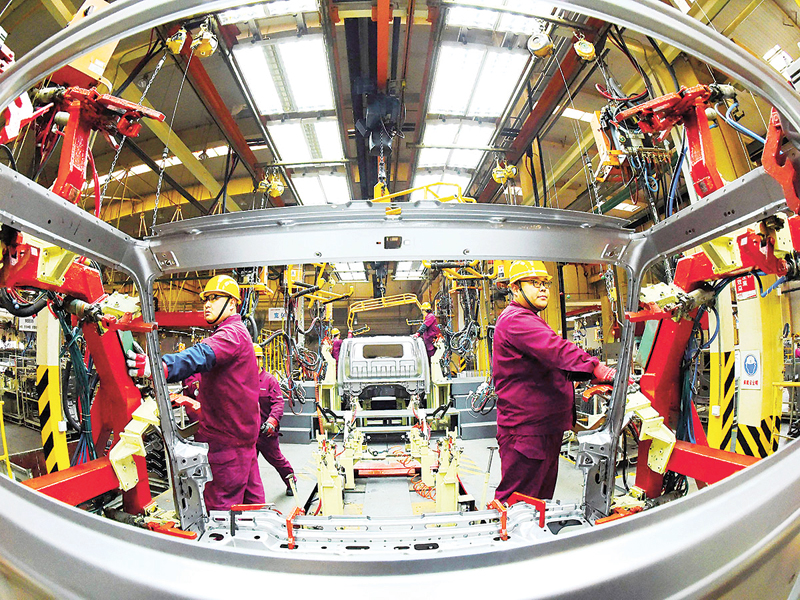

Michael Martina -
China will acknowledge concessions made in any trade deal with the United States for the sake of stabilising shaky relations, but is unlikely to yield to demands it alter its economic model even if faced with continued tariffs, many trade experts believe.
US President Donald Trump has warned he could walk away from a China deal if it were not good enough, even as his advisers touted “fantastic” progress towards an agreement to end a dispute that has put tit-for-tat tariffs on hundreds of billions of dollars worth of each others’ goods.
Such optimism has taken a different shape in Beijing, where the delay on a once “hard” March 1 deadline for a US tariff hike reinforced views that Trump’s appetite for tough measures has weakened as the 2020 presidential election draws closer and a strong US economy shows initial signs of flagging.
Chinese concessions in any deal are likely to fall short of US demands for deep change in the way the world’s second-largest economy works.
Revamping decades of state planning will not happen overnight, Chinese experts argue.
And President Xi Jinping faces political realities at home, where being seen as kowtowing to Trump would be less palatable than navigating the near-term impact continued trade tensions might have on China’s own slowing economy, they say.
One Chinese official said that China’s domestic reform was a long-term process.
“If the United States carries out overall restrictions or pressure based on its own interests, China will not accept it,” the official said.
Tu Xinquan, a trade expert at Beijing’s University of International Business and Economics, said it would be difficult for Xi to agree to US demands that China revamp the role of state-owned enterprises and other core industrial policies.
Xi would likely be prepared to go as far as to give “visible, politically influential commitments” to Trump, such as to buy more American goods and improve protection of intellectual property rights.
The United States has long complained that Beijing has systematically obtained American companies’ intellectual property through coercion and outright theft. But improving copyright and trademark enforcement is seen by hardliners in Washington as a practical and self-interested move for China, now that it has innovative companies of its own.
China verifiably cracking down on the more existential threat of forced technology transfer — which officials deny actually occurs — or substantially curbing the influence of state-owned companies in the economy is seen as less likely.
“The core features of the Chinese model — these issues will be left to the future,” Tu said.
Sources have suggested that the two sides are getting closer to a deal that could roll back some tariffs and set forth agreements on structural issues in China’s economic model, but that details of an enforcement mechanism to ensure Beijing follows through on policy pledges are still not set.
While no plans have been announced, there is widespread speculation in trade circles that Xi could travel to Trump’s Mar-a-Lago resort in Florida to hammer out a final deal in late March, on the tail end of a planned trip to Europe.
Some in US diplomatic and business communities, concerned that Trump could rush into accepting weak Chinese commitments, have been for weeks referring, with mock grandiosity, to a possible deal as the “Mar-a-Lago Accord”.
China’s willingness to make smaller commitments is driven by a desire to stabilise US-China relations and prevent the trade dispute from spreading, which has become more salient as Washington pressures its allies to jettison cooperation with Chinese tech champions, including Huawei Technologies.
“We are afraid this conflict will be extended to other areas, even affecting the relationship between China and the West. So we want to control it. Maybe not solve all the problems, but control it and calm it down,” Tu said. — Reuters
Oman Observer is now on the WhatsApp channel. Click here



